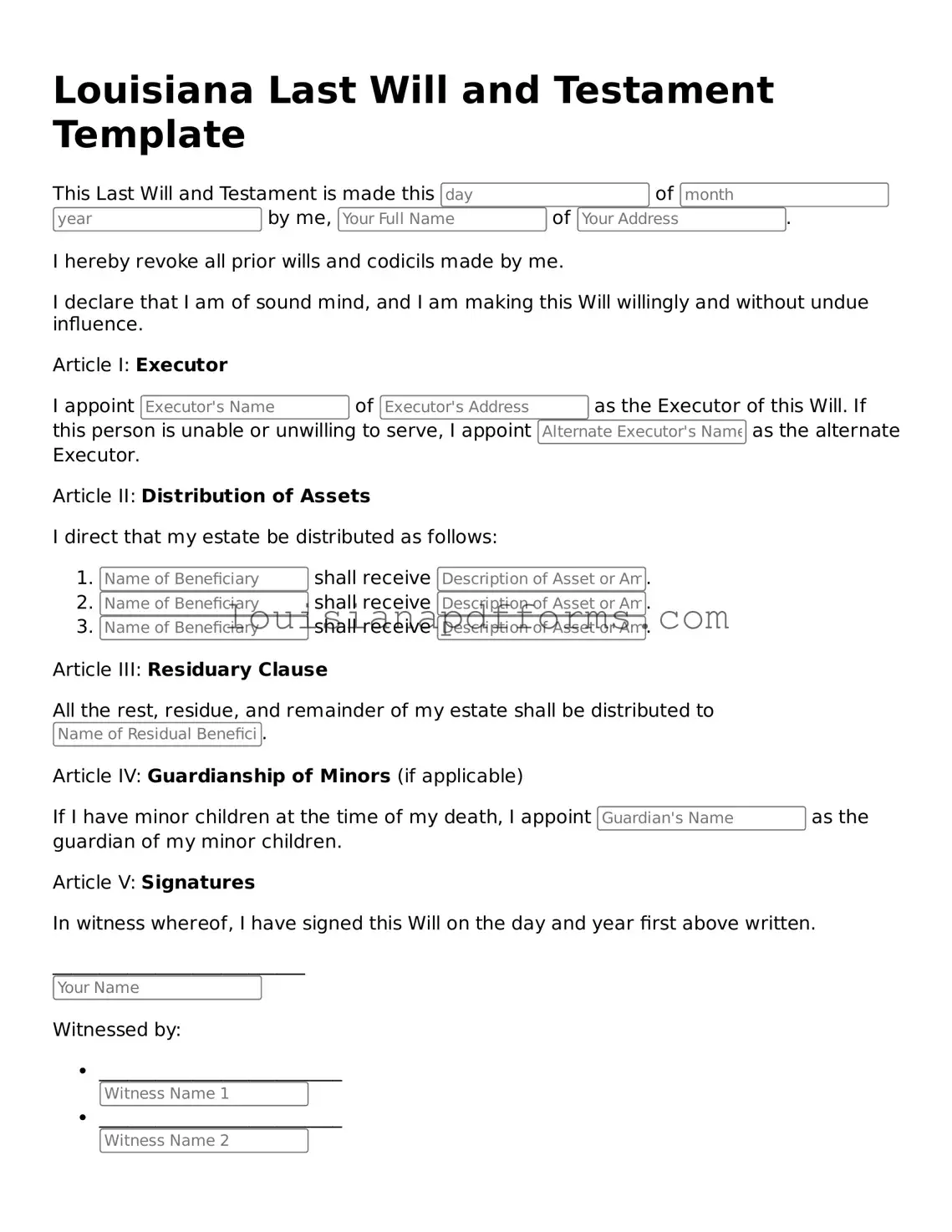Louisiana Last Will and Testament Form
A Louisiana Last Will and Testament form is a legal document that outlines how a person's assets and affairs will be handled after their death. This form allows individuals to express their wishes regarding the distribution of their property, guardianship of minor children, and other important matters. By creating a will, individuals can ensure that their intentions are honored and that their loved ones are taken care of according to their desires.
Access My Document Now

Louisiana Last Will and Testament Form
Access My Document Now

Access My Document Now
or
Free Last Will and Testament
You’re halfway through — finish the form
Edit, save, and download your completed Last Will and Testament online.